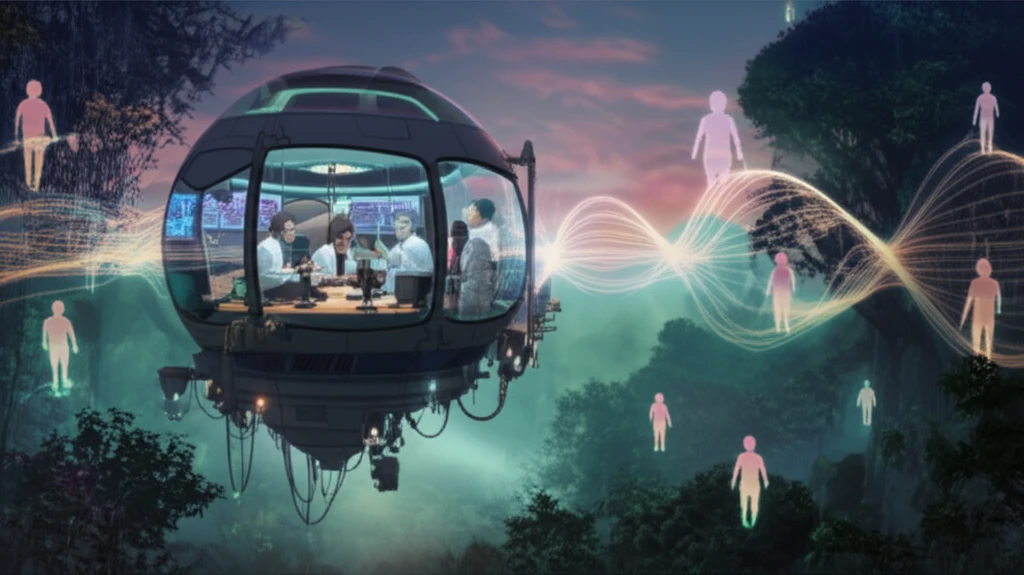
Decoding Science Podcasts: Are They the Future of Sharing Knowledge?
"A deep dive into the potential and challenges of science communication podcasts in Brazil, revealing listener habits and strategies for success."
In an era where access to information is more democratized than ever, scientists are increasingly taking on the role of knowledge disseminators. Science Communication (SC) bridges the gap between complex research and the general public, making scientific findings accessible to everyone. While traditional media still plays a significant role, independent initiatives like podcasts are emerging as powerful tools.
Podcasts, with their ease of access and production, present a unique opportunity for SC. However, the landscape of science-focused podcasts, particularly in languages other than English, is still developing. This article explores the potential and challenges of science communication podcasts in Brazil, drawing insights from a study of two prominent podcasts: Dragões de Garagem and Fronteiras da Ciência.
We delve into who is listening, what formats resonate, and how these podcasts are navigating the challenges to broaden their reach and impact. Discover how independent science podcasts are carving out a space in the Brazilian media landscape and what it means for the future of science engagement.
The Rise of Science Podcasts in Brazil: Untapped Potential

The number of podcast listeners in Brazil is on the rise, mirroring increased internet access, especially via mobile devices. This surge in online engagement creates fertile ground for science communication. However, while podcasts covering entertainment topics are abundant, science-related content remains underexplored, despite significant public interest. This gap signifies a substantial opportunity for growth.
- Listener Growth: The number of podcast listeners in Brazil has been increasing, corresponding with increased internet access.
- Content Demand: There's a high interest in scientific and technological subjects, but these topics are underrepresented in current podcast offerings.
- Format Matters: Listeners prefer podcasts that combine entertainment with quality production, presenting an opportunity for science podcasts to adopt engaging formats.
Navigating the Future of Science Podcasts: Accessibility, Trust, and Inclusivity
While science podcasts hold immense promise, several challenges need addressing. The study reveals that the primary audience tends to be young, educated males from the wealthiest regions of Brazil, indicating a need to broaden the appeal and accessibility to other demographics. Overcoming geographical and socio-economic barriers is crucial for truly democratizing science knowledge.
Building trust and fostering inclusivity are also paramount. While humor and informal language can be effective, podcast creators must be mindful of their audience and avoid alienating listeners through overly technical jargon or exclusionary humor. Creating content that is both informative and accessible, while also promoting dialogue and engagement, is key to building a loyal and diverse listenership.
Ultimately, the success of science podcasts hinges on understanding the audience, tailoring content to their interests and needs, and using innovative approaches to make science accessible and engaging. By focusing on these principles, science podcasts can play a vital role in shaping a more informed and scientifically literate society in Brazil and beyond.
